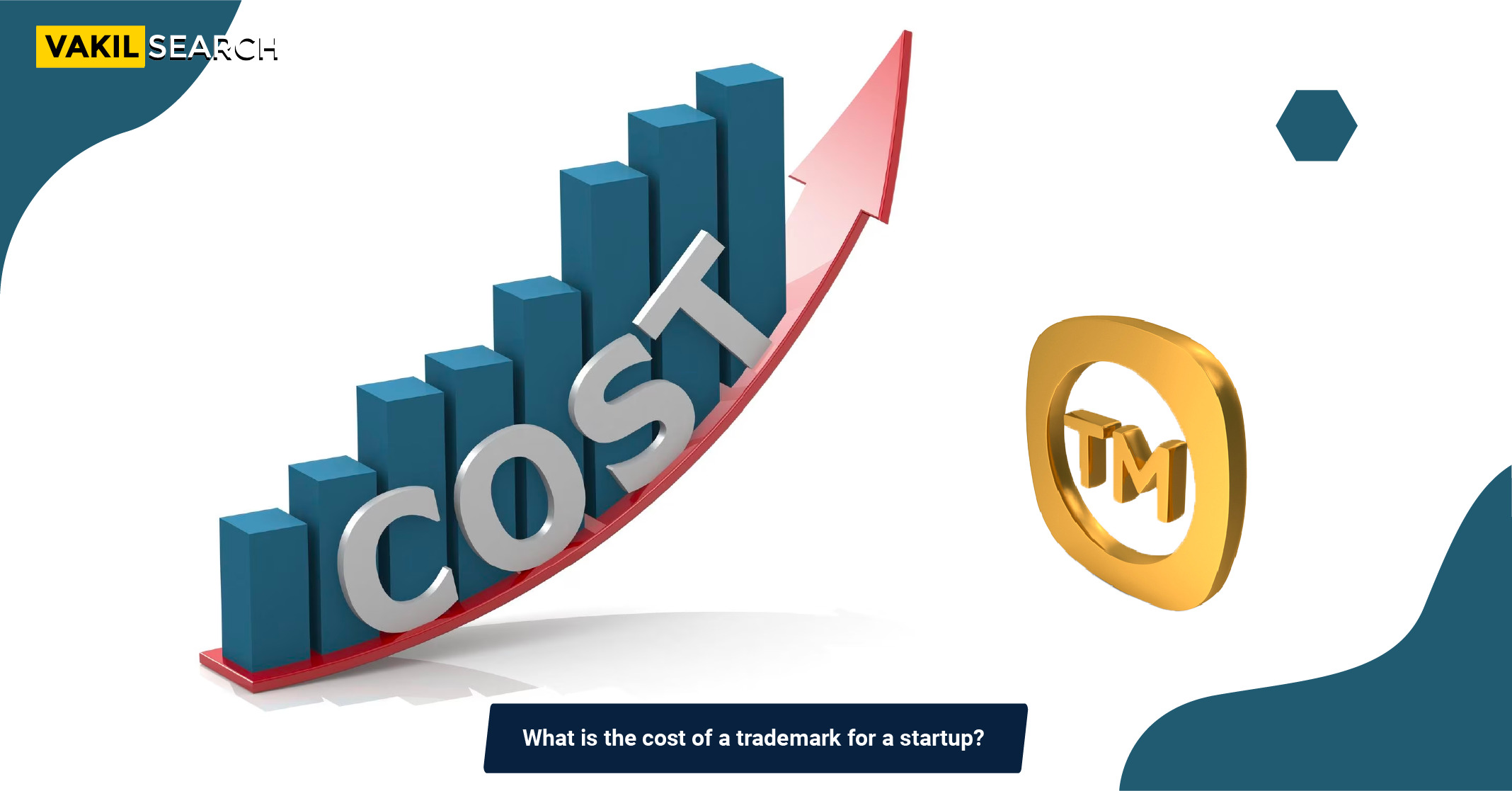The cost of trademark registration for startups can vary widely depending on factors like the type of trademark and the number of classes it falls under. Understanding the specific costs involved is crucial for budget planning and ensuring brand protection.
Introduction:
For startups, establishing a brand identity is pivotal. One of the main aspects of branding is securing your brand’s intellectual property through trademarks. If you’re a startup in India, understanding the cost of trademark registration is imperative to budget effectively and safeguard your brand. This blog will provide details on the specific trademark registration fees for startups can anticipate when registering a trademark in India.
Breakdown of Costs of Trademark for a Startup In India
The trademark registration cost varies based on the type of mark (e.g., single marks, series marks) and the applicant’s category. For individual applicants, single firms, startups, or small entities (MSMEs), the fee is ₹4500 per class. In contrast, bodies like corporations, LLPs, partnership or joint firms, and societies or trusts pay ₹9000 per class. The total cost depends on the number of classes in which you want protection.
The whole trademark registration process involves several steps, each with associated costs:
Trademark Selection: Deciding on a trademark is crucial. After several brainstorming sessions, you’ll choose a brand name that best represents your company. It’s imperative to check the availability of this name, as changing it later can be complex.
Goods or Services Classification: The class under which your trademark will be registered depends on the nature of your business. For instance, web app development services and an online software app to sell products fall under different classes. Ensure you classify correctly for adequate protection.
Trademark Search: Contrary to popular belief, the trademark registration process begins with a trademark search, not filing. This search checks for similar existing trademarks. It identifies if the desired name/logo overlaps with others in the intended class. If your chosen mark is distinct, you can proceed.
Cost: Attorney fees vary based on the agency, with no official fees in India.
Trademark Application Filing: After a successful search, the attorney drafts a trademark application. If another identical or similar trademark exists, you’ll need to reconsider yours. Once you’ve filed, you can use the ™ symbol.
Cost: Government fee of ₹4500 (for individuals/startups/Small Enterprises) or ₹9000 (for Large Entities) per mark per class. Professional fees depend on the chosen service provider.
The process also includes the examination, opposition, registration, and renewal stages, each with its nuances.
Trademark Registration Process Simplified:
Step 1: Trademark Selection
Choose a unique and representative symbol or name for your brand. It’s more than just a name—it’s your brand’s identity.
Step 2: Classification of Goods/Services
Group your product or service into one of 45 predefined classes. This ensures the right protection in the right category.
Step 3: Trademark Search
Before applying, check if anyone else already uses or has registered your chosen trademark. This step avoids potential future conflicts.
Step 4: Filing the Application
Submit the official trademark application with necessary details and documents. Hiring a professional can help avoid mistakes.
Step 5: Trademark Examination
The trademark office reviews your application. They may ask for clarifications or modifications if needed.
Step 6: Handling Opposition
After examination, your trademark details are publicized. Others can oppose if they feel your trademark infringes on theirs. Resolve any objections during this stage.
Step 7: Achieving Registration
If no one opposes, or if you address any opposition, you get your trademark certificate. This grants exclusive rights to use the trademark.
Step 8: Renewal
Every ten years, renew your trademark to keep its protection. Monitor renewal dates to avoid losing rights.
Conclusion:
Trademark registration is a vital investment for startups in India. While there are governmental fees, remember that additional expenses, especially those that arise from objections and opposition, can significantly impact the total cost. It’s crucial to budget wisely and possibly enlist professional assistance to navigate the process seamlessly.
FAQs About Costs of Trademark for a Startup in India:
Why are e-filing rates cheaper than paper filing?
E-filing is not only environment-friendly but also reduces the administrative burden on the trademark office, hence the discounted rates.
How often should a trademark be renewed in India?
Trademarks in India last for 10 years and should be renewed every decade to maintain registration.
Can I handle trademark objections myself?
Yes, but it's advised to seek professional help to ensure that the response is comprehensive and adheres to legal nuances.
What if I can't afford the trademark registration costs right away?
It's essential to begin using your trademark in business, as this establishes your rights to some extent. However, registration offers full protection, so it should be a priority when funds permit.
Is there a government concession for startups regarding trademark registration fees?
Yes, startups, individuals, and small enterprises avail a discounted fee for trademark registration in India.





